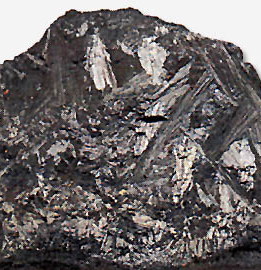Over-mining risk raised
 A new report raises concerns about Australia's potentially excessive extraction of critical transition minerals.
A new report raises concerns about Australia's potentially excessive extraction of critical transition minerals.
A newly released report by the Jubilee Australia Research Centre cautions that policymakers are neglecting essential steps to promote responsible and sustainable usage of key minerals, such as emphasising the recycling of electric vehicle (EV) batteries.
Titled “Greenlight or Gaslight? The Transition Minerals Dilemma for Australia,” the report highlights the potential consequences of Australia’s fervent efforts to benefit from the global shift to EVs and clean energy.
It says Australia runs the risk of extracting more critical minerals than required, overlooking the significant benefits of recycling these minerals from Li-ion EV batteries.
Australia currently recycles EV batteries at a rate of less than 10%, despite the fact that up to 90% of the minerals within these batteries can be recovered.
By increasing recycling efforts, the demand for critical minerals could be halved, creating a viable industry.
Additionally, implementing policies that reduce car dependence and enhance mass transit could reduce reliance on these batteries by a staggering 71%.
The report underlines the potential consequences of the “mine first, ask questions later” approach, warning against the possibility of stranded assets, inefficient resource utilisation, and avoidable harm to the environment, water sources, and local communities across Australia.
These findings come at a time when the Australian federal government is developing a new Critical Minerals Strategy, aiming to accelerate sector growth as part of the nation's commitment to achieving net-zero emissions.
Resources Minister Madeleine King recently stressed the importance of increasing Australia's processing capacity and expanding mining projects to capitalise on the projected global demand for critical minerals.
A recent ministerial roundtable also highlighted mineral mining as a national priority, seizing the opportunities presented by the ongoing transition to clean energy and EVs, which gradually reduces reliance on fossil fuels for electricity and transportation.
Dr Luke Fletcher, the lead author and Executive Director of the Jubilee Australia Research Centre, a non-profit organisation advocating for economic justice in the Asia-Pacific region, urged the government to pause and reflect on the potential pitfalls of this mining surge, avoiding the mistakes and damages of past mining booms.
“As we seek to exploit yet another resource, it is crucial that we adopt a smarter and more efficient approach,” Dr Fletcher says.
While acknowledging the government's strategy to position Australia as a “renewable energy superpower” and expedite the transition from a fossil fuel-dependent export economy, he stressed that extracting critical transition minerals could lead to significant social and environmental damage if not properly managed.
Dr Fletcher also criticised the unrealistic demand projections driving the current mining policy, emphasising the lack of consideration for alternative policies that could impact the demand for “green” minerals.
According to the International Energy Agency, the demand for minerals used in clean energy technologies is expected to quadruple by 2040, and a scarcity narrative surrounding lithium suggests that its demand could outpace supply as early as 2031.
These projections have sparked speculative investment in lithium and other transition minerals mines, further intensifying the urgency for responsible management.
Australia holds the distinction of being the world's largest producer of lithium and a major producer of cobalt and rare earth elements.
The country boasts substantial reserves of manganese, nickel, and copper, all of which play crucial roles in the post-carbon era.
As of June 2020, Australia had 22 operational projects related to six key transition minerals, with an additional 120 projects in the exploration or approvals stages.
However, the report reveals that numerous viable policy alternatives to reduce mineral demand remain largely unexplored.








 Print
Print